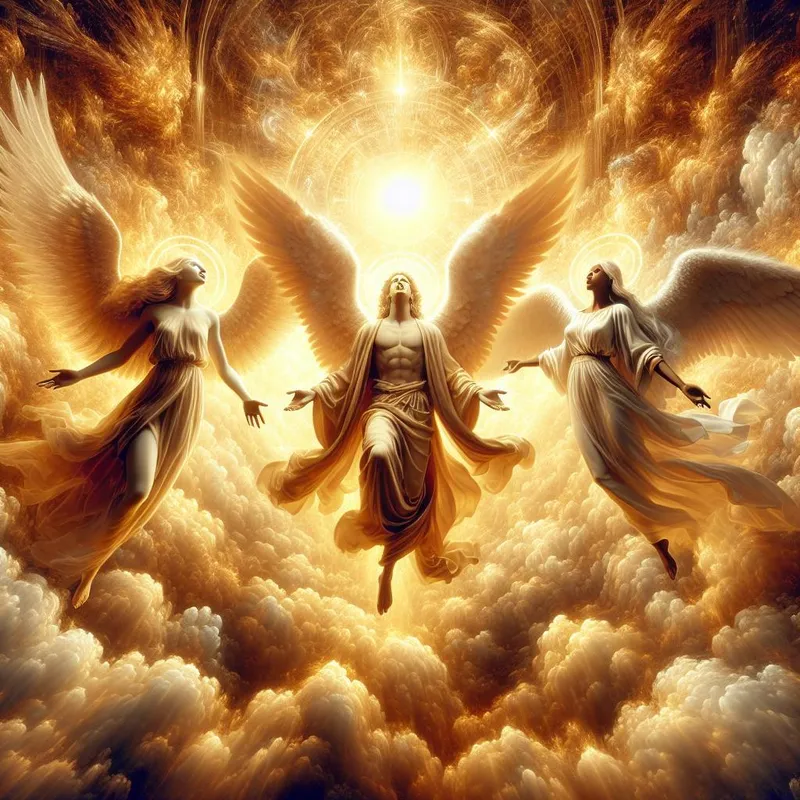
'Holy Holy Holy: Exploring the Divine Triune Nature'
Posted on 14 May 2024
The Holiness of God
The phrase "holy, holy, holy" appears in both the Old and New Testaments of the Bible. It is spoken or sung by heavenly creatures in the visions of Isaiah and John. But what does it mean for God to be holy?
God's holiness is one of His essential attributes that sets Him apart from all other beings. It is more than just His perfection or sinless purity; it is the essence of His "other-ness," His transcendence. In fact, holiness is not something that humans possess inherently; we only become holy in relationship to Christ. Only through Christ do we become righteous in God's eyes. God's holiness embodies the mystery of His awesomeness and causes us to marvel at His majesty.
Isaiah's Vision
In the book of Isaiah, the prophet has a firsthand witness of God's holiness. In his vision, Isaiah sees heavenly creatures called seraphim crying out, "Holy, holy, holy is the LORD Almighty." Even though Isaiah was a prophet and a righteous man, he becomes aware of his own sinfulness and despairs for his life because of the overwhelming holiness of God. Even the angels in God's presence cover their faces and feet with their wings as a sign of reverence and awe. This shows us that we should approach God with profound reverence and not rush thoughtlessly into His presence.
John's Vision
In the book of Revelation, the apostle John has a similar vision of the throne of God. He sees living creatures around the throne crying out, "Holy, holy, holy is the Lord God Almighty." John describes these creatures giving glory, honor, and reverence to God continually around His throne. Unlike Isaiah, John does not fall down in terror and awareness of his own sinful state. This may be because John had already encountered the risen Christ at the beginning of his vision. Through Christ, we can approach the throne of grace with confidence.
The Triune Nature of God
The repetition of the phrase "holy, holy, holy" not only expresses the supreme holiness of God but also reflects the triune nature of God. In Christianity, God is understood to exist in three persons: the Father, the Son (Jesus Christ), and the Holy Spirit. Each person is equal in holiness and majesty. Jesus Christ is referred to as the Holy One who was resurrected and exalted at the right hand of God. The Holy Spirit, by His very name, emphasizes the importance of holiness in the essence of the Godhead.
Consistency Throughout Scripture
The visions of Isaiah and John highlight that God is consistent throughout the Old and New Testaments. Often, people think of the God of the Old Testament as a God of wrath and the God of the New Testament as a God of love. However, Isaiah and John present a unified picture of our holy, majestic, awesome God who does not change. This consistency reassures us that God's holiness is eternal and unchanging.
Why This Matters
Understanding and acknowledging the holiness of God is crucial for our relationship with Him. It helps us recognize our own sinfulness and our need for redemption through Jesus Christ. Recognizing God's holiness also inspires reverence and awe in His presence, reminding us to approach Him with humility and respect.
Think About It
- How does recognizing God's holiness impact your view of yourself and your relationship with Him?
- In what ways can you cultivate reverence and awe in your worship and daily life?
- How can you deepen your understanding of God's holiness through studying Scripture and seeking His presence?
